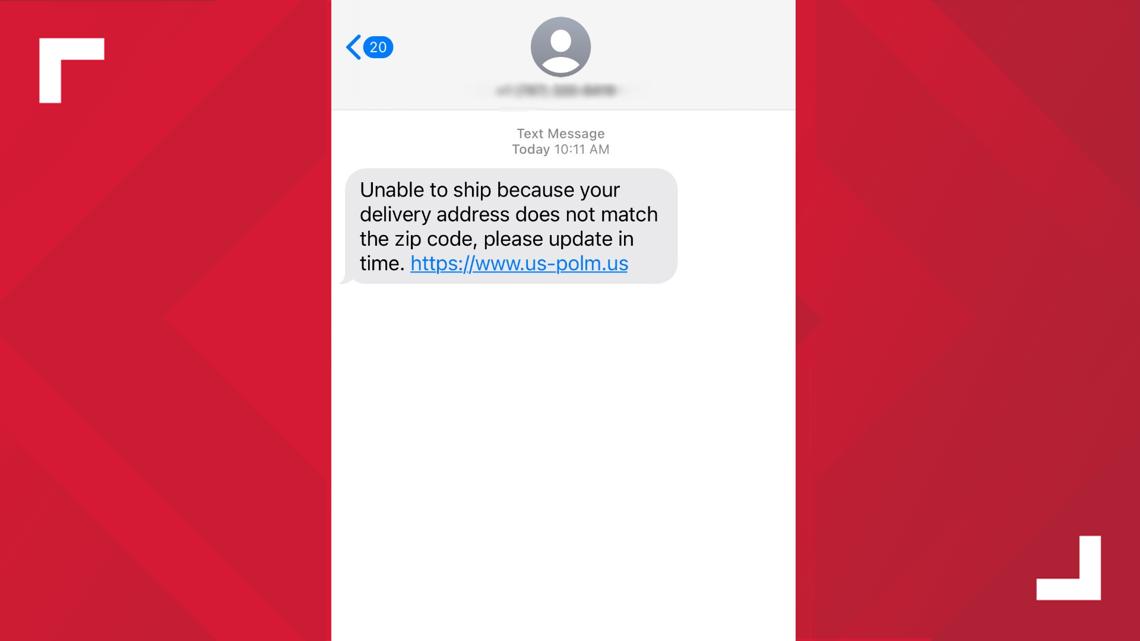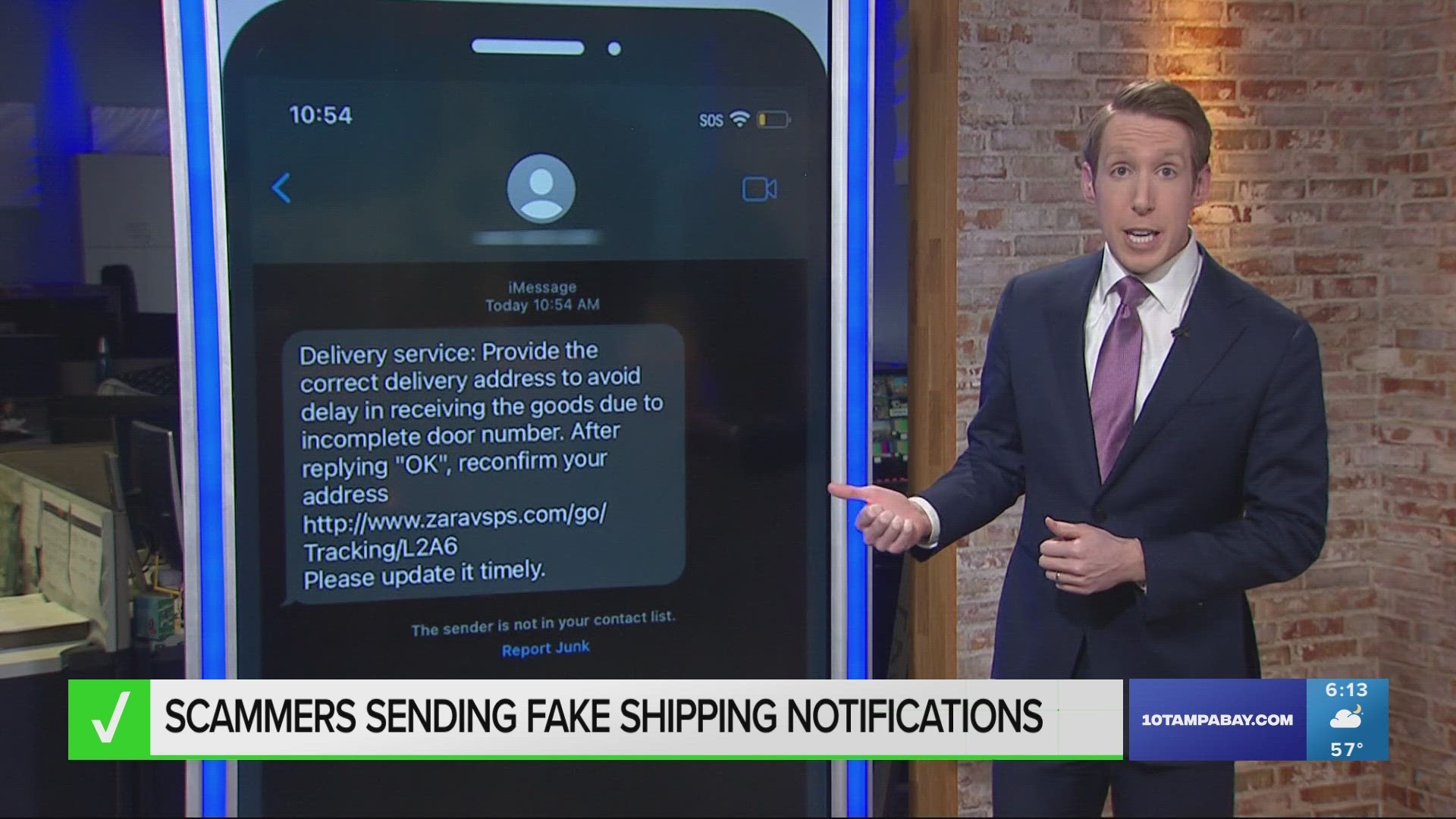ST. PETERSBURG, Fla. — Not everyone is in the holiday-giving spirit.
The shopping rush can be big business for scammers who know people are making a lot of online purchases.
So VERIFY reviewed holiday scam warnings from the Federal Trade Commission (FTC), the Better Business Bureau (BBB) and the AARP to help you spot a fake so you don’t have your personal information stolen.
THE SOURCES
WHAT WE FOUND
While this is a scam that you can fall for year-round, it can be more effective this time of year when more people are shopping.
A fake shipping notification is exactly what it sounds like: A notification sent via text or email with information about a delivery that isn’t real. It’s likely you’ve received these kinds of messages before; the AARP says they accounted for more than one in four spam texts in 2021.
The BBB says this kind of scam is “particularly prevalent” during the holiday season. The AARP explains that scammers are hoping you’ve done most of your Christmas shopping online and can’t keep track of all of your purchases, or that you’ll just assume the package is a gift from someone close to you.
This scam often looks like an email or text message from a legitimate package carrier, like the United States Postal Service (USPS), FedEx or UPS. The message may have what it claims is a tracking link, it might tell you that you need to confirm your order before it will be delivered or it could tell you that you need to reschedule your delivery because an unsuccessful delivery attempt was made.
If the message has a link, it’s likely a phishing link that wants you to enter your personal and financial information, or it has malware that the scammer can use to extract that information on their own.


The simplest way you can avoid falling victim to this scam is by keeping track of your orders. Be wary of any unexpected deliveries or messages about them.
Text messages about missed deliveries should raise red flags unless you’ve already opted into them. If you receive an unsolicited notification via text or email, don’t click on links attached to the message. Instead, go to the company’s official website and find its tracking tool or customer service options there.
The United States Postal Inspection Service plainly says, "If you never signed up for a USPS tracking request for a specific package, then don’t click the link."
A more low-tech version of this scam comes in the form of a fake missed delivery slip left on your front door. These slips include a phone number for the victim to call, which the scammers will use to get your personal information.
Legitimate package carriers also usually leave a slip on your door to notify you of a missed delivery. To make sure that the slip you see on your door isn’t a scam, you should read the information and instructions on it carefully to make sure it’s for a real delivery. If there is anything suspicious about the slip, use the customer service number the company has posted online rather than the one on the slip.
VERIFY's Emery Winter contributed to this report.

